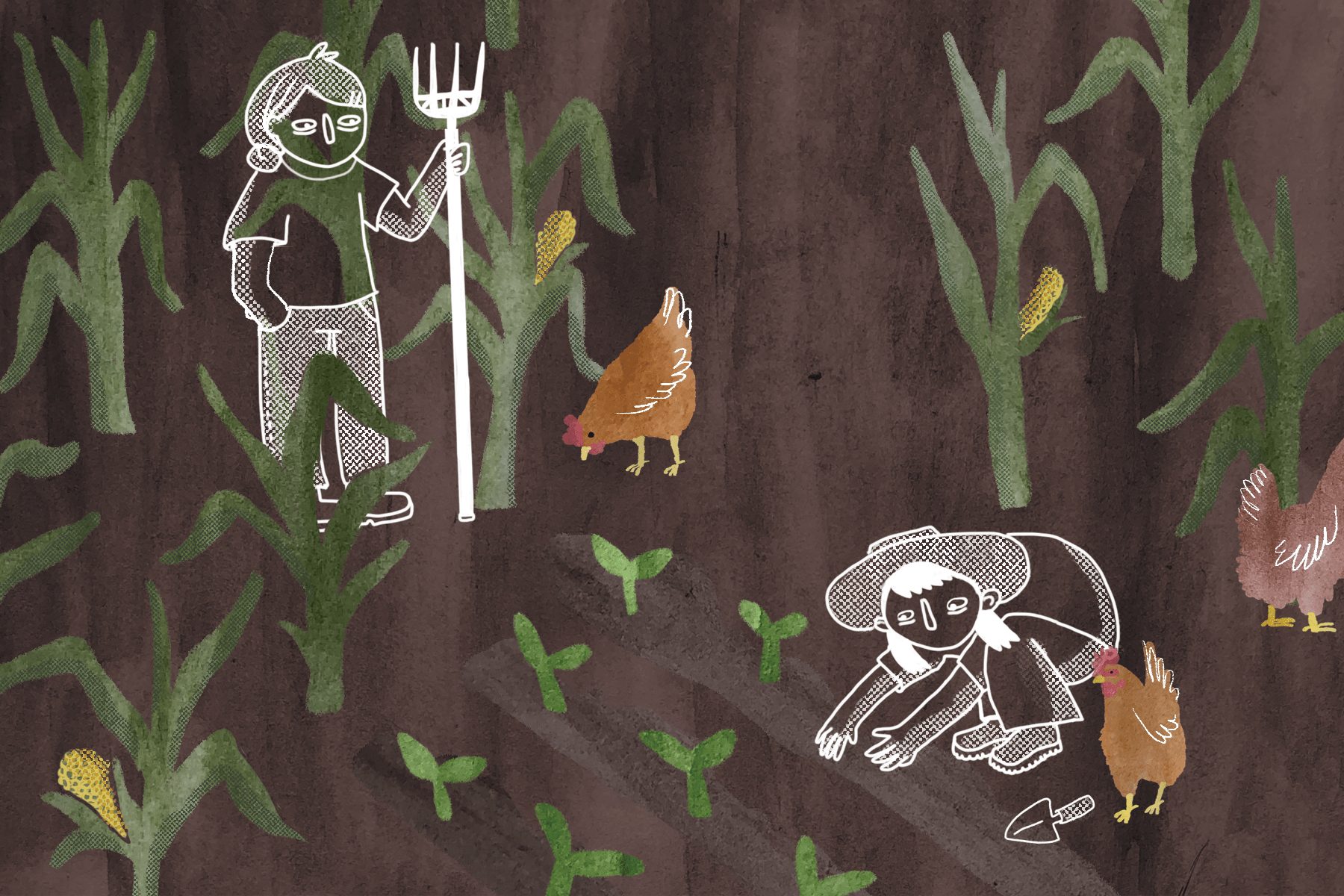WWOOF, World Wide Opportunities on Organic Farms, is the ever-growing network of the organic farming community. For a yearly membership fee, anyone interested in volunteering on a farm can search the WWOOF database to locate and contact farms looking for workers. The WWOOF website advertises its mission to “promote cultural and educational experiences based on trust and non-monetary exchange, thereby helping to build a sustainable, global community.”
WWOOF is built on the principal of the gift economy, rather than on capitalism. Hosts provide food and housing for volunteers in exchange for between 20 and 40 hours of farm work per week. Volunteers stay at farms anywhere from a week to several months. The database’s model lays the groundwork for a solid and mutually beneficial experience between farm host and volunteer. Services are exchanged for hospitality, and based on WWOOFer reviews, the experience tends to be educational in both directions. In this way, both parties benefit without any exchange of money, and the organic farming community grows both in size and in shared wisdom. Services and knowledge flow between groups, thus cultivating rich relationships based on gratitude, rather than the attitude of obligation often attached to a paycheck.
A review left by a WWOOF volunteer at Poe Run Craft & Provisions farms sums up this sentiment well: “I am grateful to them [the hosts] for their trust in me and the great conversations we had each morning over coffee and each evening during our shared dinner.” The review highlights the way in which the symbiotic, nonmonetary set-up builds trust and cultivates relationships.
Though WWOOF sets up the model for this type of connection, each farm is independently operated and therefore offers its own unique experience. Specific arrangements vary from farm to farm, as do the volunteers’ daily tasks, chores and responsibilities. WWOOFers might find themselves cultivating an herb garden, harvesting from an orchard, tending to livestock, planting a vegetable garden or any number of farm-related activities, depending on the season and the type of farm they visit. In fact, WOOFers can use the database to find a host farm suited to their specific interests.
Volunteers also use WWOOF to travel affordably. WWOOF allows potential volunteers to browse a map of farms around the globe. The database boasts 1,694 farms in the United States alone, as well as hundreds of participating farms on every continent except Antarctica. WWOOF truly fosters a global community, as its mission statement outlines. It also offers volunteers the opportunity for a cultural education in a new, potentially unfamiliar location.
WWOOFing isn’t new, but its popularity has seen a large resurgence since the beginning of the COVID-19 pandemic. Many people have found themselves out of work or school, with lots of time on their hands. WWOOF, as a live-in “job,” is pandemic friendly. It also offers a learning experience that will rid restless quarantine sufferers of their increasingly acute wasted-time syndromes. I speak from experience.
This summer, I took advantage of the WWOOF database and am currently volunteering at a homestead in Eastern Tennessee called the Junk and Grow Homestay. Amelia and Johnny, the owners of the homestead, are welcoming, dedicated hosts who are excited to share their knowledge and expertise with the WWOOFers. At the homestead, Amelia and Johnny strive toward greater food self-sufficiency and are experimenting with sustainable farming methods like permaculture. The hosts, who both have jobs outside the homestead, rely on WWOOFer labor to maintain the farm that they might not otherwise have time for. My daily tasks range from planting and watering to tending the chickens to infrastructure construction. Amelia and Johnny have complemented the hands-on education by sharing their farming philosophy with me.
Amelia and Johnny enjoy hosting WWOOFers because, as they see it, sharing their wisdom and passion for sustainable food cultivation with volunteers is their small way of making a positive impact on the world. Furthermore, they enjoy meeting a diverse array of volunteers and are enthusiastic about the flow of ideas and knowledge in both directions. My experience has certainly been a testament to the mutually beneficial learning experience WWOOF offers.
Farm-related learning aside, as a native of a small city in Massachusetts, volunteering at the Junk and Grow Homestay has exposed me to both rural life and Southern life. I have encountered different ways of thinking and learned about the landscape by living on it. In contrast to traditional forms of tourism, WWOOF volunteers learn from the locals (their hosts) about the area to which they traveled and are more closely connected to the region through working on the land.
One past WWOOFer on Hidden Hills Farm left a review raving about the cultural learning experience she received: “Hidden Hills was my first experience on an American farm … I spent a lot of time on Australian farms … so this was a completely different experience and really opened my eyes to what is possible.” Her review is a testament to the breadth of experiences discoverable through the database, as well as their eye-opening educational value.
Amidst the COVID-19 pandemic, many college students saw internships and college semesters evaporate before their eyes. The fate of the upcoming fall semester, for most students, is still uncertain. Many would-be students are considering taking a semester off in the event that classes are moved online and conducted remotely. For those individuals, WWOOF can offer educational experience set apart from the classroom (and certainly from the digital classroom). While a college education is valuable, hands-on work and cultural learning can be of equal value. WWOOFing is a pandemic friendly chance for college students, or anyone, to leave their comfort zone and learn by doing.

















